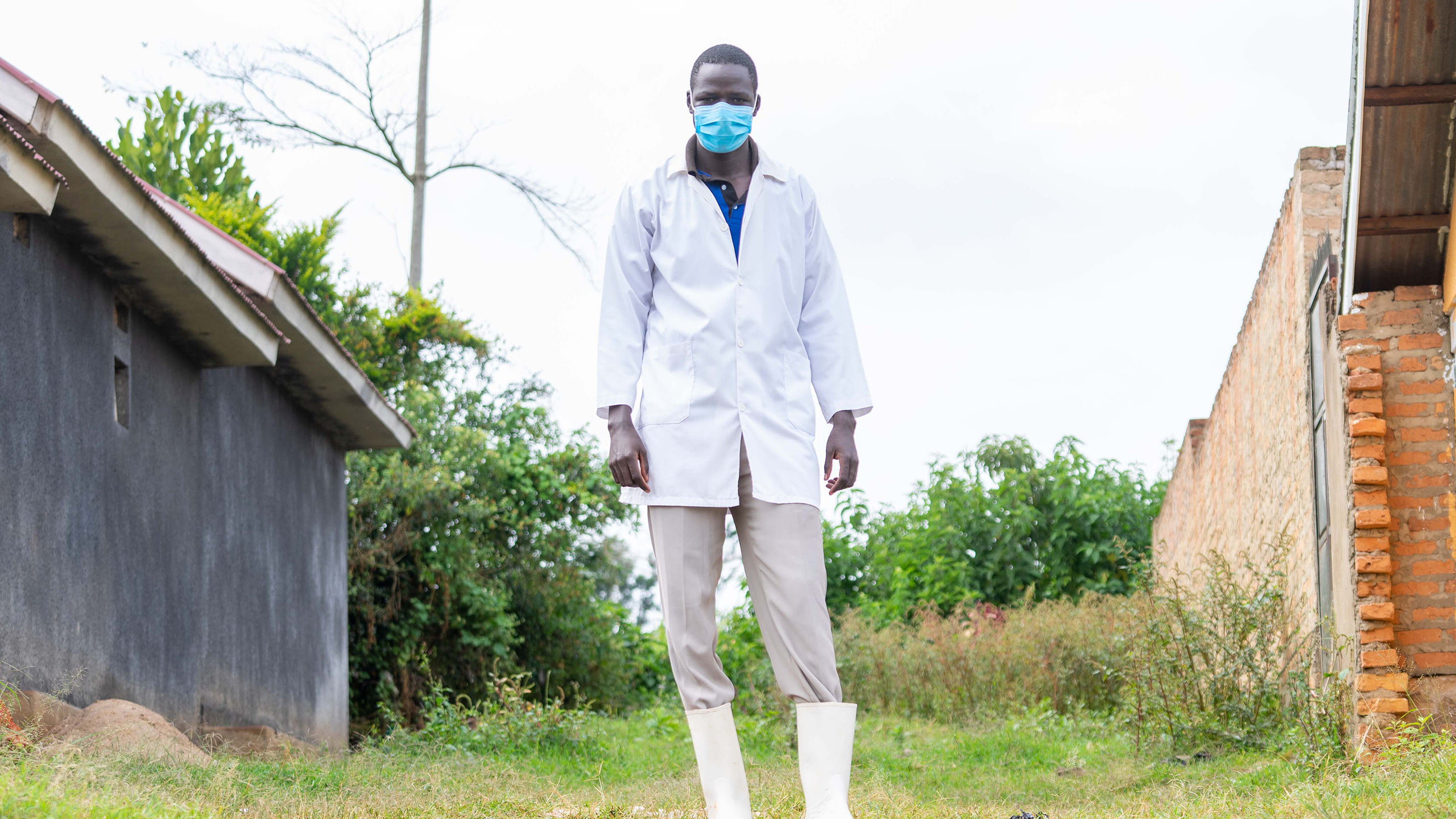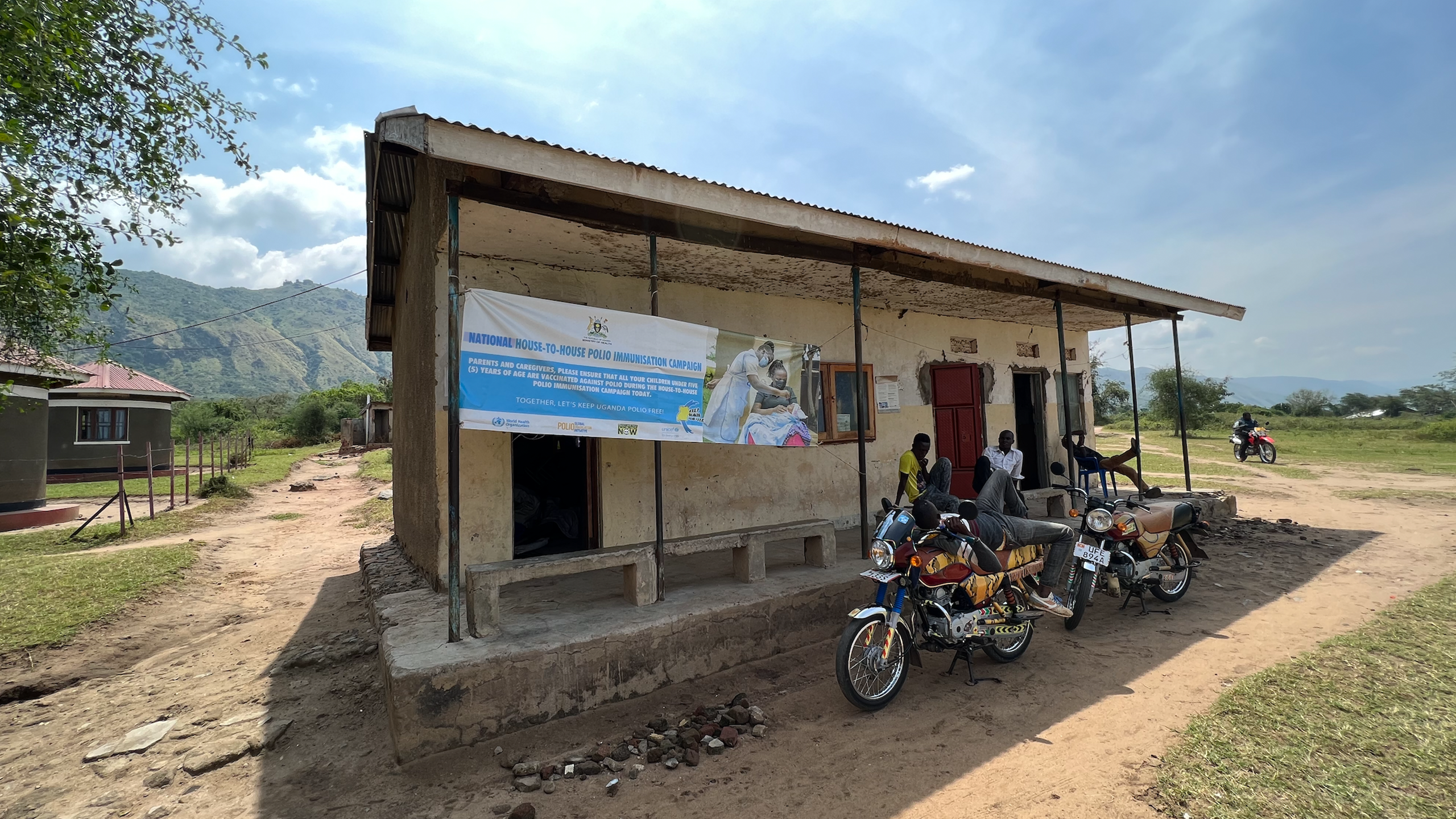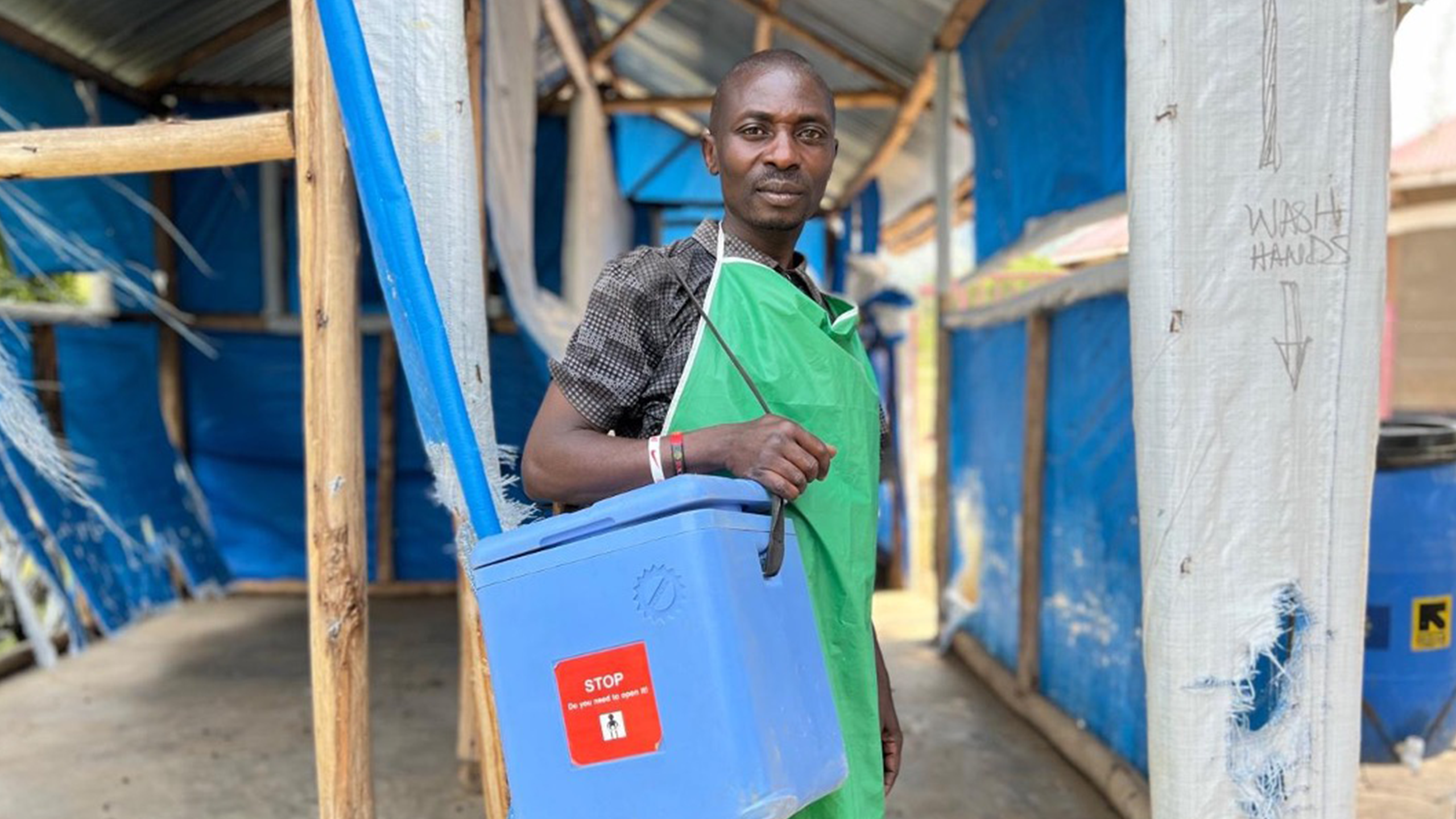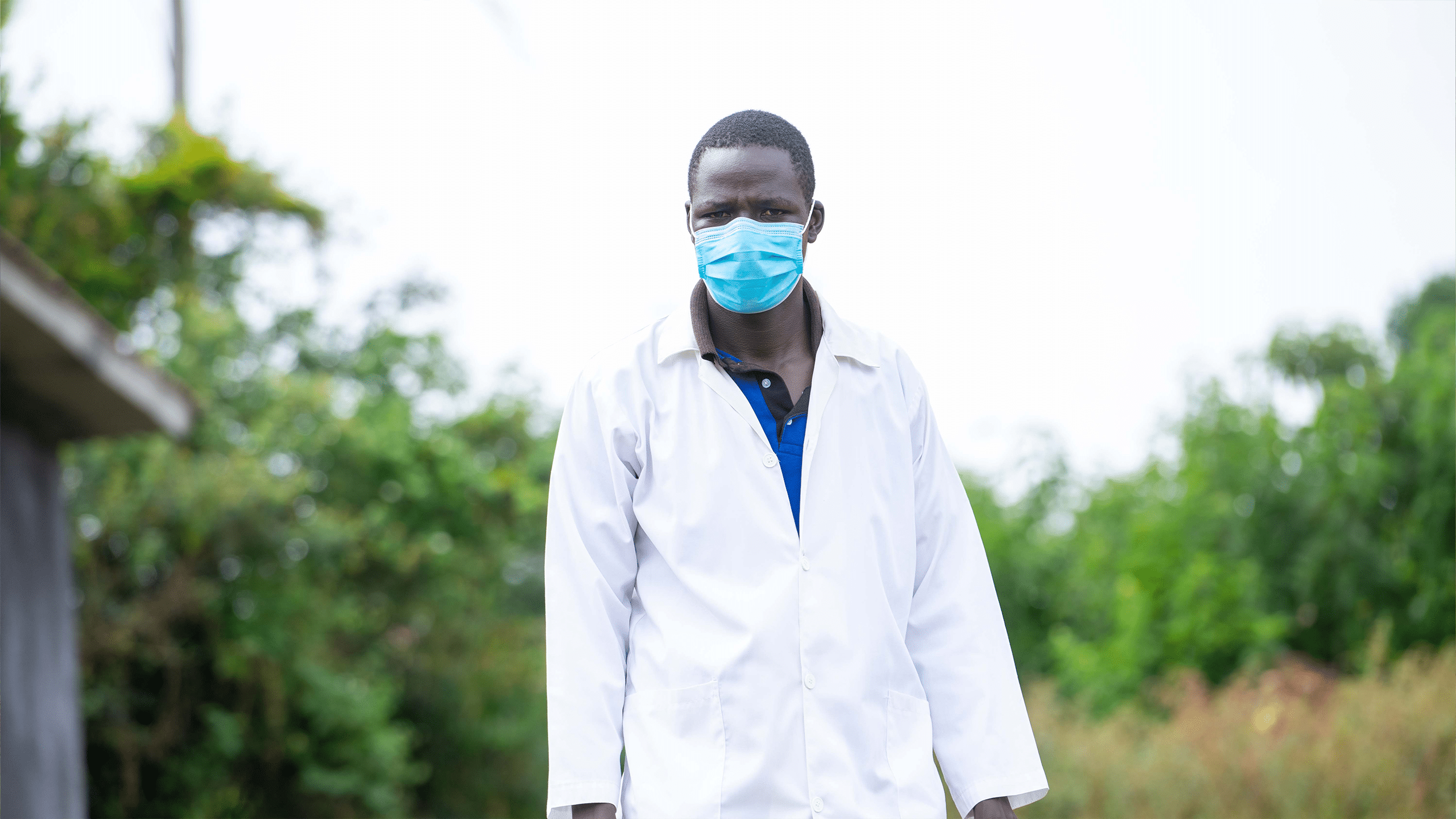Bridging the Healthcare Gap

For millions of last-mile communities, there are few options when it comes to health services – people are hard to reach and often isolated without access to primary, specialized, and crucial health care services. When rates of COVID-19 began rapidly increasing in Uganda, the one healthcare center in Ndaiga Sub-County in Kagadi District, was overwhelmed, leaving most vulnerable people and the most in need with tragic effects.
Raimond Ocan, a Health Assistant who lives and works in the Ndaiga Sub-County, shares how difficult it is to provide help where it is most sorely needed, and how the pandemic reflected the striking inequities in health systems for last-mile communities.

“The health situation is life-threatening here, there is inadequate health service due to limited health facilities and restricted drug supply. households suffer from poor hygiene and sanitation due to low latrine coverage,” Raimond explains.
Poor infrastructure is not the only limitation in making quality health services within reach for community members in Ndaiga. The Sub-County also experiences poor availability of essential medicines. This leaves many families with a difficult choice— rely on herbal medicines and self-medicate with inadequate knowledge of their safety or suitable quality. As part of our programming, Raising The Village worked with partner communities in Ndaiga Sub-County to bridge the gap between last-mile communities and the only health provider, building a health outreach system that is now reaching households when they need it most. Accordingly a full-on health outreach system was born.

“Through the partnership with Raising The Village, we can organize community integrated health outreach to bridge the distance with the only health center in Ndaiga. We use this time to educate community members on sensitization and risky health behaviors,” Raimond talks about the health outreaches.
Health outreaches are currently conducted by Raising The Village and held in last-mile communities who have limited access to health services. By offering essential health services – health checkups, medicines, COVID-19 vaccines, community health advisors, and more, we are able to reach more last-mile communities to improve the health and well-being of vulnerable people. We continue to provide our health outreach programs for people living in remote rural areas to lower their health risks and help break generational cycles of poverty.


